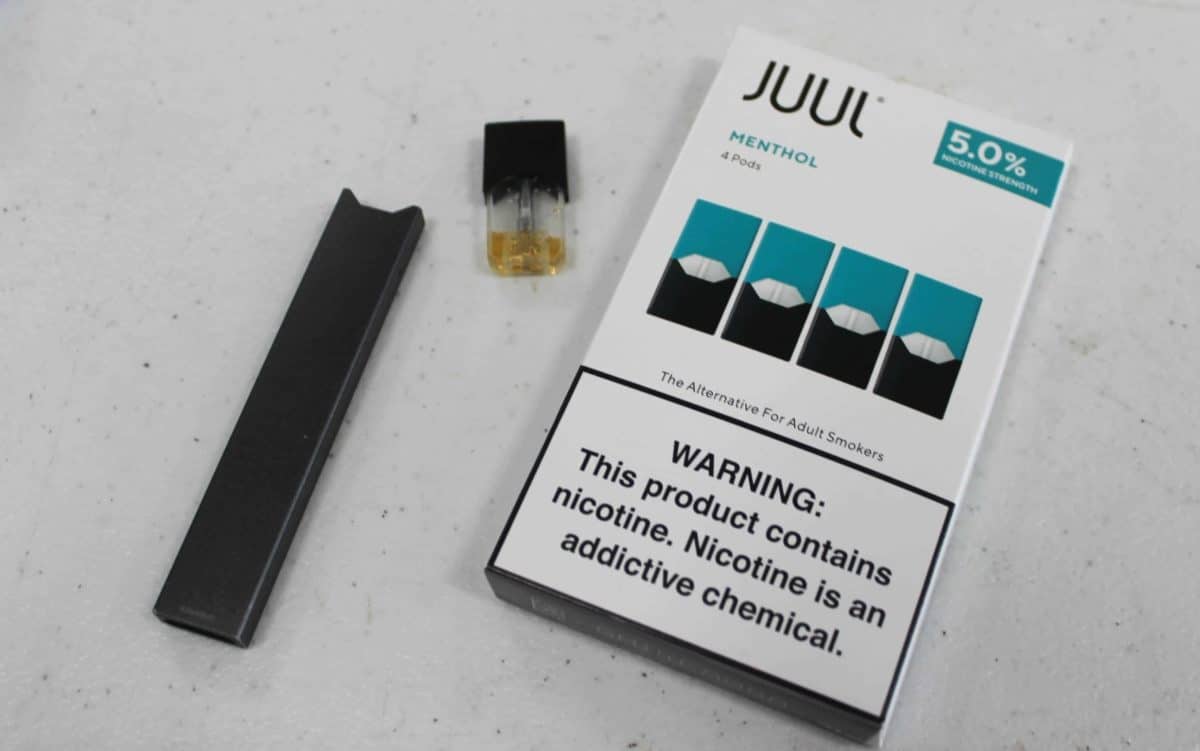
Attorney General Josh Stein announced eight lawsuits against eight separate e-cigarette companies on Tuesday: Beard Vape, Direct eLiquid, Electric Lotus, Electric Tobacconist, Eonsmoke, Juice Man, Tinted Brew, and VapeCo. The lawsuits are filed under the North Carolina Unfair or Deceptive Trade Practices Act and allege that the companies target children and do not require appropriate age verification.
The announcement follows Stein’s lawsuit against Juul Labs, Inc. in May “for designing, marketing, and selling its e-cigarettes to attract young people and for misrepresenting the potency and danger of nicotine in its products.” Juul remains the dominant player, with more than 70% of the e-cigarette marketshare, and Stein said discussions with Juul Labs, Inc. following the lawsuit are ongoing.
“There is a vaping epidemic among high schoolers and middle schoolers in North Carolina and the United States,” Stein said in his announcement to media. “And everyday we’re learning additional negative health consequences of these e-cigarette products.”
Stein said some of these health consequences include addiction to nicotine, lung disease, and emphysema. He also noted the first known death due to severe respiratory disease attributed to vaping last week.
“We simply have to do more to protect kids,” Stein said. “And I refuse to stand by as e-cigarette companies entice thousands of children to use their products.”
The Attorney General’s complaints allege that the eight e-cigarette companies target youth in three primary ways: 1) through the use of flavoring (like bubble gum, fudge, french toast, gummy bear) and packaging (e.g., designing their products to look like apple juice boxes), 2) through marketing on social media channels children are known to use like Instagram and Snapchat, and 3) a lack of meaningful age verification, and in some cases no age verification at all, for purchase as required by North Carolina law.
These complaints align with the Food and Drug Administration’s (FDA) crackdown on the e-cigarette industry last year after the 2018 National Youth Tobacco Survey showed that 1.5 million more students used e-cigarettes in 2018 than in 2017.
“We achieved one of the most impressive public health victories, hard fought, over about a 20-year period,” Stein said. “From 1998 to 2017, we saw the youth smoking rate decline from 28% to 5%. In 2018, it is nearly back up to 30%, and this growth is almost exclusively driven by e-cigarettes.”
Stein said flavors that attract children are one main reason for the increase in e-cigarette use and said survey data shows that young people vape because they like the flavors.
“There used to be flavored cigarettes, and then Congress acted and said you may not do flavored cigarettes,” Stein said. “There are only two lawful flavors now. There’s traditional tobacco and menthol. E-cigarettes should be no different, and that’s one of the outcomes I’m seeking in these lawsuits.”
However, unlike in the past battles with Big Tobacco, Stein said today’s situation is more complicated because there are more e-cigarette manufacturers due to low barriers to entry and more ways to market to young people.
“This is going to be a challenging fight. I don’t want to undersell how hard this work is going to be,” Stein said. “But I simply will not stand by and watch young people become addicted to a very dangerous product without doing everything in my power to put a stop to it.”
To keep up with EducationNC’s coverage of youth e-cigarette use, click here.
Recommended reading



